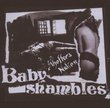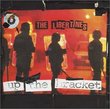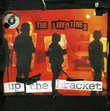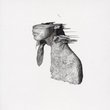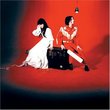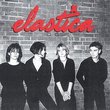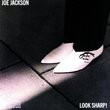| All Artists: Libertines Title: The Libertines Members Wishing: 0 Total Copies: 1 Label: Sanctuary Records Release Date: 8/31/2004 Genres: Alternative Rock, Pop, Rock Styles: Hardcore & Punk, Indie & Lo-Fi, British Alternative Number of Discs: 1 SwapaCD Credits: 1 UPC: 060768325029 |
Search - Libertines :: The Libertines
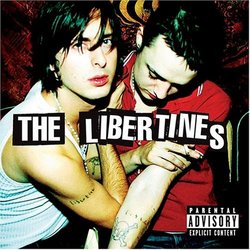 | Libertines The Libertines Genres: Alternative Rock, Pop, Rock
Rock'n'roll can pretty much burn off pure mythology alone, but what happens when the soap opera of drug abuse and broken friendships threatens to overwhelm the music? That's the problem the Libertines' eponymous second LP ... more » ![header=[] body=[This CD is available to be requested as disc only.]](/images/attributes/disc.png?v=430e6b0a) ![header=[] body=[This CD is unavailable to be requested with the disc and back insert at this time.]](/images/attributes/greyed_disc_back.png?v=430e6b0a) ![header=[] body=[This CD is unavailable to be requested with the disc and front insert at this time.]](/images/attributes/greyed_disc_front.png?v=430e6b0a) ![header=[] body=[This CD is unavailable to be requested with the disc, front and back inserts at this time.]](/images/attributes/greyed_disc_front_back.png?v=430e6b0a) |
Larger Image |
CD DetailsSynopsis
Amazon.com Rock'n'roll can pretty much burn off pure mythology alone, but what happens when the soap opera of drug abuse and broken friendships threatens to overwhelm the music? That's the problem the Libertines' eponymous second LP must face up to--and while it sometimes struggles to live up to the magic of its predecessor, 2002's Up the Bracket, it's still peppered with enough inspiration to explain why people still care about this band. Co-frontmen Carl Barat and Pete Doherty tackle their problems head on with the opening "Can't Stand Me Now," an anthemic, harmonica-accompanied number with echoes of the Cure's "Lovecats," that sees Barat sum up The Libertines' troubled history in the album's most quotable line: "The boy kicked out at the world/ The world kicked back a lot f***ing harder." Further rollicking moments come on the Barat-sung "Narcissist" and knockabout closer "What Became of the Likely Lads?" But there's some workmanlike moments, and almost inevitably, they feature Pete at the helm: see the hoarse, off-key "Don't Be Shy." All told, a merely good record. If the Libertines truly want a place in rock history, they'll have to prove they have the discipline to channel their undeniable inspiration. --Louis Pattison Similar CDs
Similarly Requested CDs
|
CD ReviewsAs expected Henry Stonehall | London, UK | 05/05/2008 (4 out of 5 stars) "The Libertines have had a turbulent 12 months since the release of their debut album, Up the Bracket. Co-frontman Pete Doherty was awol from the band when he was arrested for burgling bandmate Carl Barat's flat, and subsequently jailed. But that's beside the point (except for those still foolish enough to equate drug addiction and petty crime with bona fide rock'n'roll credentials). All the credentials the Libertines need are there on Up the Bracket. Like the Kinks, the Jam, the Smiths and the arty, questioning wing of Britpop, the Libertines view Britain afresh. Theirs is an eccentric collage of island life - Boadicea and Chas and Dave, Sherlock Holmes and Sid James - in which wry cynicism competes with romantic idealism. It's an assertion of cultural identity that is witty and vibrant rather than dim and bullish, and it's best captured on the raucously stirring Time for Heroes: "There's few more distressing sights than that of an Englishman in a baseball cap. We'll die in the class we were born, that's a class of our own." The Libertines' strength - and their weakness - is a sense of barely contained chaos. Their boozy, last-orders punk thunders along the thin line between swagger and stagger, and the latter often hobbles their live shows. Whether they become greats or just one of those great what-ifs that Britain specialises in depends on whether they regroup, but they have the talent and the belief. Shamelessly intelligent, stylish, wayward and complex, if they don't shoot themselves in the foot, they can shoot for the stars."
|

 Track Listings (14) - Disc #1
Track Listings (14) - Disc #1